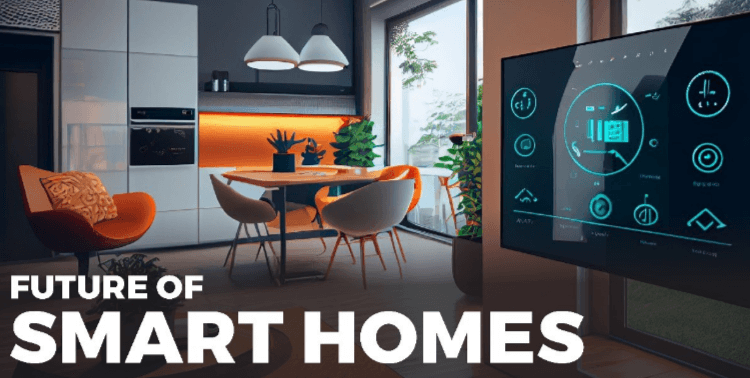What Technological Innovations Are Driving the Future of Smart Homes and Connected Devices?

Introduction to Smart Home Technologies
Smart homes represent the forefront of domestic technology, integrating advanced systems and devices that elevate convenience, security, and energy efficiency. This exploration into the technological innovations shaping smart homes will highlight the key drivers making these spaces more intelligent and interconnected.
The Central Role of IoT in Smart Homes
The Internet of Things (IoT) is pivotal in enabling devices within a home to communicate seamlessly, from smart lighting systems to intelligent HVAC units. This connectivity is the backbone of efficient and adaptive smart home environments.
The Impact of Artificial Intelligence on Home Automation
Artificial Intelligence (AI) has transformed smart home solutions by introducing adaptive learning systems that analyze user habits and preferences to manage the home’s environment, ensuring optimal comfort and energy utilization.
How 5G is Revolutionizing Connectivity in Smart Homes
The integration of 5G technology promises unprecedented improvements in the communication between smart devices. With its ultra-fast speeds and reduced latency, 5G enhances the capability of homes to handle more complex tasks and instantaneous data streaming.
Advancements in Voice-Controlled Devices
Voice control technology has become a staple in smart homes, facilitated by advances in natural language processing. This technology allows users to interact with their home systems through simple voice commands, creating a more intuitive and hands-free operational experience.
Robotics and Automation in Daily Home Tasks
Robotic technology in smart homes extends beyond vacuum cleaners and lawn mowers. Future innovations are likely to introduce robots that assist with more diverse tasks, including cooking and home maintenance, propelled by advancements in machine learning and mechanics.
Next-Generation Home Security Systems
Modern smart homes incorporate sophisticated security measures like real-time surveillance, facial recognition, and automated locks. These technologies not only deter potential intruders but also provide homeowners with peace of mind through enhanced monitoring and control features.
Sustainable Living with Smart Energy Systems
Energy efficiency is a significant focus of smart home technology. Innovative systems such as smart grids and solar-integrated roofing can manage energy more effectively, reducing carbon footprints and lowering utility bills.
Ensuring Device Compatibility Through Interoperability
As the variety of smart home devices expands, ensuring these devices can operate together regardless of the manufacturer is crucial. Standardization of device protocols and communications is vital for a seamless and functional home ecosystem.
Predictive Maintenance for Home Appliances
Smart homes benefit from predictive maintenance technologies, which utilize AI and sensors to foresee and prevent appliance failures. This not only prolongs the life of home appliances but also enhances the overall efficiency of the home.
Augmented Reality for Enhanced Home Customization
Augmented Reality (AR) offers innovative ways for homeowners to configure and visualize their living spaces with virtual overlays of furniture and appliances, assisting in optimal space utilization and device placement.
The Evolution of Smart Appliances
Smart appliances are increasingly becoming more autonomous, capable of performing complex tasks such as adjusting cooking times or suggesting recipes based on the ingredients stored within them. This evolution is part of a broader trend towards more responsive and user-friendly home environments.
The Role of Cloud Computing in Smart Home Optimization
Cloud computing facilitates the vast data processing required for smart homes, from user preference analytics to device performance optimization. This backbone of smart home technology allows for the remote management and integration of various home systems.
Conclusion: The Future is Smart
The landscape of smart homes is continually evolving, driven by advancements in IoT, AI, and cloud computing. These technologies promise to make our homes more responsive to our needs, safer, and more energy-efficient, marking a significant leap toward the future of living spaces.
Frequently Asked Questions
What is the significance of IoT in smart homes? IoT technology allows smart devices to communicate and operate in unison, enhancing the efficiency and functionality of the home environment.
How does AI improve smart home security? AI enhances home security by analyzing behavioral data to detect anomalies and potential threats, thereby providing proactive security measures.
What benefits does 5G offer to smart homes? 5G technology enhances smart home functionality by providing faster data transmission rates and lower latency, supporting more robust and responsive home systems.
How do smart homes promote energy efficiency? Smart homes use technology to optimize energy use, such as through smart thermostats and energy-efficient appliances, which reduce unnecessary power consumption and lower energy bills.
Can different brands of smart home devices work together? Emerging standards and protocols aim to ensure that devices from various manufacturers are compatible, allowing them to communicate effectively within a smart home ecosystem.
What capabilities do modern smart appliances offer? Modern smart appliances offer functionalities like remote control via apps, customization of operations, and maintenance alerts, enhancing convenience and efficiency in household tasks.






